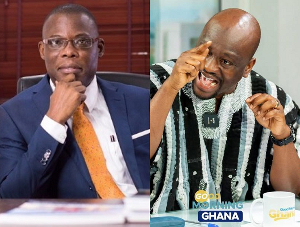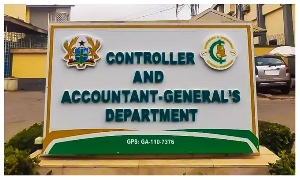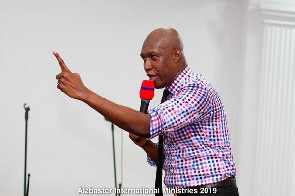Political parties that crave to come to power always do so with an agenda crafted in an elaborate campaign promise otherwise referred to as a manifesto.
The Oxford Advanced Learner’s dictionary defines ‘manifesto’ as: “a written statement in which a group of people especially a political party, explain their beliefs and say what they will do if they win an election”.
Thus it can be argued that the manifesto is the instrument to be used to gauge how true politicians are to their word – and to the People! So, what was the manifesto of the ruling National Democratic Congress (NDC) during the 2008 elections which brought them to power and to what extent have these promises been fulfilled this far?
In the run up to the 2008 elections, the NDC looked at the prevailing economic, social, health and economic situations and designed its manifesto in conformity with the party’s political ideology at the time, which eventually brought them to power.
Technically speaking, Ghanaians accepted their manifesto promises with the hope that the NDC would fulfill the promise to transform their lives and enhance their standards of living. As the 2012 elections draw closer, it will not be out of place to assess the performance of the present government in the almost four years that it has been in power.
Again, the NDC manifesto in 2008 was divided into segments such as 100 days, two years and end of first term in office.
The NDC promised in the first hundred days to establish a lean but effective and efficient government to curtail ostentation and profligate expenditure; rationalize the ministries and ministerial appointments; and promote service, humility and integrity as principles of government.
It further said it will ensure the prompt and effective implementation of existing legislations such as the Persons with Disability Act ( Act 715 of 2006) and the Whistle-blowers Act, (Act 720 of 2006).
What is of great interest, perhaps, was the promise on sanitation. The party said it will take bold and comprehensive measures to deal with the appalling filth in the country, and the related health problems of the people caused by inadequate, inappropriate and ineffective waste management systems and practices - all in the first 100 hundred days in office.
However, Ghanaians will be the best judges on some of those promises as most of the issues are still awaiting fulfillment, especially on the problem of sanitation.
The NDC indicated that within two years in office, it will present to Parliament a co-ordinated programme of economic and social development including agricultural and industrial programmes at all levels, and in all regions of Ghana as required under Article 36 (5) of the Constitution.
It also said it will significantly reduce the troubling trends in infant and maternal mortality and review the National Health Insurance Scheme (NHIS) to provide coverage for basic health care for all.
But it appears the fulfillment of these promises too is yet to come to pass. Infant and maternal mortality are still unacceptably high, for instance.
It is instructive to note that the government also promised to streamline public sector wages with the view to boosting productivity and paying decent wages for the working people, and to source additional resources from external sources to be able to expand and improve the quality of the school feeding programme to cover all primary schools countrywide.
“The NDC recognises that in a democracy, the tools of information and communication should be responsibly used to promote national unity and to ensure the stability and security of the state….a plural media such as exists in Ghana today, giving vent to divergent views and opinions, is necessary for a healthy, democratic society.
An NDC Government will safeguard free expression and, when necessary, review any laws that may hinder free speech”, the party pledged.
It would also be recalled that they promised to make the career progression and development of journalists issues that would engage the serious attention of an NDC government, stressing the need for a sponsorship programme for journalists for further training and specialization.
“An NDC government will commence work on the permanent new campus for the Ghana Institute of Journalism at its new site", it added. GIJ till date remains stuck in its old structure.
Also, the welfare of Journalists in this country continues to grow worse in spite of the establishment of a Media Development Fund (MDF) that was pronounced during the presentation of this year's Budget to Parliament, with nothing concrete having come out of it yet. By the way, what has become of the MDF?
Politicians should watch what they say when they want power in this 21st century and be pragmatic in walking the talk, for there has emerged a new generation of politically-conscious citizenry.
Besides, it is not right for them to promise heaven when they know very well they won't be able to deliver on those campaign promises.
It has to be acknowledged, however, that even though the ruling government might have fallen short in fulfilling some of its campaign promises made in 2008, it has made some significant gains in the economic, social, health and political sectors of the country. In the economic sphere, it has been able to achieve single digit inflation and has maintained that for close to two years even though its impact on the everyday life of the ordinary Ghanaian remains debatable.
Under the NDC's reign, the country has seen the implementation of the Single Spine Salary Structure which has put much money in the pockets of public sector workers, as well as other social interventions.
At the launch of the party's Green Book which talks about the achievements of the ruling Government, President John Mahama mentioned a GDP growth of 13.6 per cent, longest sustained single-digit inflation, one million metric tons of cocoa production and the setting up of the Constitution Review Commission, as some of the “unprecedented achievements” of his administration.
Mr. Haruna Iddrisu, Minister of Communications also submitted that under the 'Better Ghana Agenda', a total of 1,250 schools under trees had been eliminated, while two new public universities were being established at Sunyani and Ho and added that the Metro Mass Transit Service had procured additional 350 buses to extend services to many more communities.
To put government on its toes, the electorate has a responsibility to continuously remind politicians about the promises they make.
Ghana is a rich country endowed with numerous natural and human resources. It is one of the luckiest countries in the world in terms of opportunities, yet poverty remains unacceptably high among many households.
Why has development in real terms continued to elude Ghana in spite of its bountiful resources? The answer is obvious that successive leadership of the country have failed to utilize those resources for the benefit of the country and the people.
Civil society's role in advocating for development and championing the rights of groups and individuals has been tremendous but it must be accompanied by the strong voice of the people if it has to achieve the desired objective.
The best way to teach the politician to behave well is through voting. Since the people have the right and voice to raise concern about issues affecting their survival, they must exercise that right responsibly and effectively.
The politicians must be told in clear terms that they cannot continue to deceive the electorate, so they should watch their words and make realistic promises in the run-up to the forthcoming elections.
Opinions of Tuesday, 16 October 2012
Columnist: Paul Achonga Kwode














